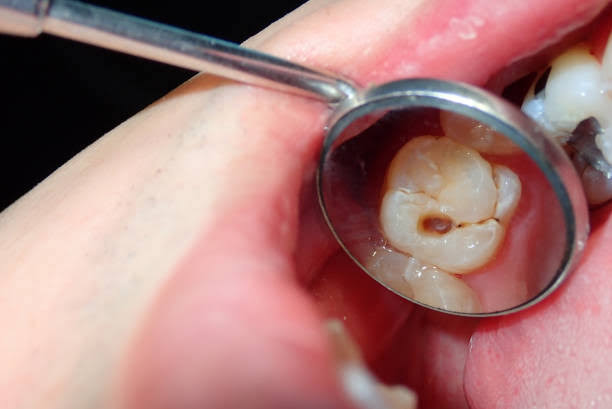Cavities is a term that a lot of people have heard about, with many patients having gone to their dentist in order to get the cavity taken care of. Basically, a cavity is another way to say tooth decay.
Tooth decay is going to be influenced by our lifestyle, what we eat, how we take care of our teeth, and the presence of fluoride in the water and toothpaste that we use. There can also be a genetic factor that comes into play here, with some people being more susceptible to decay than others.
What are Cavities?
While it is more common for children to have cavities due to a lot of the sugar in the food they eat and the softness of their baby teeth, it is also possible that an adult can have a cavity as well. There are actually several types of cavities that you will find including:
- Coronal cavities: These are the most common and can happen in adults and children. These are the ones that are found between the teeth or right on the chewing surfaces of the teeth.
- Root cavities: As we age, our gums will begin to recede a bit, which is going to leave some of the root of the tooth exposed. Since there isn’t enamel covering the roots, they can decay as well.
- Recurrent decay: The decay can form around some of your existing crowns and filling. This is because these areas tend to accumulate plaque, which is going to lead to decay of the teeth.
Many adults are going to see their risk of cavities go up when they have a condition known as dry mouth. This is often due to a lack of saliva in the mouth. It is caused by illness, medications, radiation therapy, and chemotherapy. For the most part, this is going to be a temporary problem, but if it becomes more permanent, it is a good idea to discuss it with your doctor to be safe.
Cavities are a very serious problem in the mouth, even though they are common. When they are not treated with the help of a dentist, they are enough to destroy the tooth and can kill the nerves that are at the center. This can result in an abscess, an area of infection found at the root tip. Once this abscess forms, the only way that you can treat the issue is by extracting the tooth, surgery, or a root canal, all of which are more invasive than a filling.
Do I Have a Cavity?
In some cases, the cavity will get bad enough that you will feel a lot of pain and discomfort. When the tooth is this far decayed, it will most likely need to come out. Only the dentist will be able to see the cavity when it is still small. Remember that cavities are going to develop beneath the surface of the tooth, where it is really hard to see them.
When you decide to eat foods that have carbs in them, which are sugars and starches, the carbs are going to be eaten by the bacteria that is found in the plaque around your teeth, which will then produce acids that will eat into the tooth. This can be enough to help break down the enamel of the tooth beneath the surface, while the surface is still in place. When enough of the sub-surface of the enamel is gone, the surface will collapse, which is going to help form the cavity.
Cavities are found anywhere on the tooth, but it is most likely that you will find them near the gumline, between the teeth, and on the chewing surfaces of the back of the teeth. No matter where you find them, the best way for them to get found and then treated before the issue gets worse and the whole tooth is gone is to visit your dentist for a checkup two times a year.
Can I Prevent a Cavity?
It often seems like cavities are just a part of life, something that we need to deal with and will not be able to prevent. But while cavities can be common, there are steps that you can take to prevent cavities in the first place. Some of the steps that you can take to help prevent cavities on your teeth and keep them protected includes:
- Brush your teeth at least two times a day and floss to help remove the plaque that is between the teeth and below the gumline.
- Make time to go to your regular dental checkups. Preventive care can help to stop problems from occurring and will keep minor problems from turning into big ones.
- Eat a diet that is well-balanced while limiting the sugary or starchy foods in the meals. When you do eat these meals, eat them more as the meal rather than as a snack to help minimize how often the teeth are exposed to the acid.
- Make sure that you pick out dental products, like toothpaste, that have fluoride in them.
- Make sure that the water you and your children drink is fluoridated. This provides some extra protection to the teeth. If your water supply does not have this, then you may need to consider a fluoride supplement.
Taking care of your teeth is an important component of having the best oral hygiene possible. Working with your dentist and attending some of the routine oral exams that you need will make a big difference and can help keep the teeth protected and will ensure that the cavities don’t bother you forever.
Routine dental check ups will help you to find cavities in the mouth early on and can make it easier to treat them. Leaving the cavities in place for a long time can cause a good deal of damage to the tooth and can even cause pain and other issues at the same time. At Nazareth Northstar Dental Care, our team is here to provide you with the best in dental care, no matter how long it has been since your last visit. We can help take care of your teeth, including providing the best treatment for any cavities that are found. Trust us to help get the work done right.








